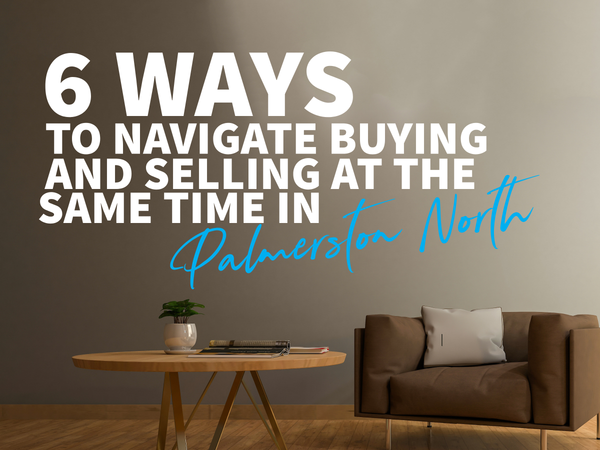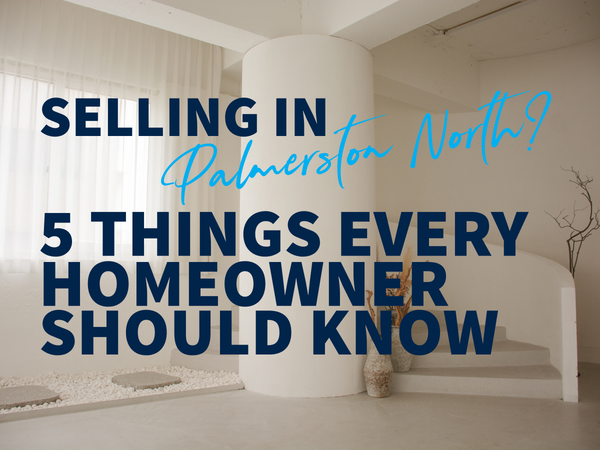How to Sell a Rental Property in Palmerston North

Owning a rental property has long been a smart way to build long-term wealth. But there often comes a point where holding that investment no longer feels like the best next move.
Maybe you’re tired of the stress, ready to release the equity, or simply want to simplify. In Palmerston North, we’re seeing more investors make the decision to sell—not out of panic, but out of clarity. The key is to treat the sale with the same strategic care you gave to the investment itself.
Three of the most common scenarios I've seen among landlords who have chosen to sell are:
- Change of Lifestyle: As life shifts gears, many owners I've worked with are often looking to just simplify. Letting go of an investment property can free up both capital and headspace, and often opens the door to long-postponed plans.
- Banking Capital Gains: If your property has grown in value, now might feel like the right time to lock that in. For some, it’s not about timing the market perfectly—just making the most of what’s already built.
- 'Landlord Fatigue': Ongoing repairs, tenancy law changes, rent delays — over time, even a solid investment can start to feel like it’s demanding more energy than it gives back. When the reward no longer justifies the effort, it’s worth asking whether it’s still the right fit.
Whatever’s led you to this point, whether it’s financial, personal, or simply timing, this is your opportunity to realise the full value of your investment and put that capital to work elsewhere.
You only have one opportunity to sell a property. Getting it right isn’t about luck, it’s about making clear, informed decisions at the right time. Here are four key considerations before deciding to sell an investment property in Palmerston North:
1. Vacant or Tenanted?
An empty property often creates more flexibility—for buyers to view, for photographers to capture the property at its best, and for shorter settlement timeframes.
On the other hand, a tenanted property means consistent cash flow while the home is on the market. But it may come with drawbacks or limitations—especially if access is restricted or the presentation isn’t ideal. Another consideration is that existing tenancies that are longer may narrow your buyer pool to investors, rather than owner-occupiers.
There’s no single right answer. But understanding the implications of each path, and aligning your approach with timing, and what you want to achieve, makes all the difference.
2. Marketing with Existing Tenancies
Selling with tenants requires their cooperation—and that means acknowledging their inconvenience. After all, there’s not much in it for them, aside from strangers walking through their home. Consider offering a temporary reduction during the marketing period, as an act of good faith. It shows goodwill, encourages presentation effort, and can make it easier to schedule viewings and open homes that suit both parties.
3. Small Fixes with Big Impact
When you don’t live in a property day-to-day, it’s natural for small maintenance tasks to fall lower and lower down the list. But to a buyer walking through for the first time, it's often the smaller details that speak the biggest volumes.
Simple improvements—such as a coat of paint, some fresh landscaping, or tidying-up and completing long-postponed repairs—can shift the overall impression from 'rental' to 'home'. The cleaner, fresher and more 'move-in ready' the property feels, the broader your property appeal—particularly to owner-occupiers.
If your aim is to attract competition and achieve a premium result, presentation is rarely a wasted effort.
4. Staging, Strategy and Standing Out
Do you know what I've noticed among the most successful rental sales? They're marketed like homes—not just investments. When it’s not your own home, it can feel harder to justify professional staging or digital promotion. But buyers don’t care who lives there. They care how it looks, and how it makes them feel. If you're selling the property empty, staging is worth considering.
Regardless of occupancy, professional photography, high-profile markieting, and smart targeting all work together to attract better buyers—and more of them.
In short: market your rental like it’s your own home. Because to a buyer, it will be.
Final Thoughts
Selling an investment property can often stir up more questions than answers, especially when it’s not something you’ve done before. It’s not just a financial decision; it’s often a transition. One that deserves to be handled with care.
The right buyer, the right presentation, the right strategy—when those things align, the outcome can set you up for your next chapter. That might mean clearing debt, freeing up capital, or simply stepping out from the responsibilities of being a landlord.
Wherever you're heading, the way you exit matters.
If you're unsure where to start, that’s okay. The first step is a simple one: a conversation. No pressure, no assumptions—just the chance to outline what’s possible, and how to do it well.





